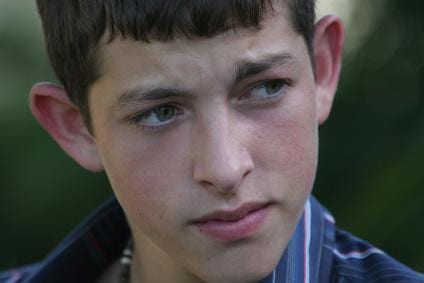As a child becomes older, it becomes less and less acceptable for him to act violently or throw temper tantrums when he does not get his way. People usually expect a toddler to throw a tantrum when upset, because he has not yet learned how to effectively communicate what he wants. An older child or preteen who throws tantrums or uses violence to express his anger has learned that violence is an effective method for getting what he wants. It may be difficult, but you can put a stop to a child’s violent behavior.
Connect with Your Child
Step 1
Set an example for your children. Do not punish them with spanking or other physical methods. Children are excellent at mimicking what they see, and if they see you using violence to control them, they will attempt to use violence to control you. If your partner physically abuses your children, make every effort to remove yourself and your children from that environment.
Step 2
Maintain open communication with your child. Make time to talk with her after school or at meals. Listen to your child’s concerns without passing judgment and participate in her activities and interests.
Step 3
Avoid letting children watch excessively violent television shows or movies. Keep an eye out that they don’t bring home violent video or computer games. If your child does see a violent incident, whether real or fictional, take time to discuss it with him and explain the effects of the violence on the people it happened to.
If Violent Behavior Occurs
Step 1
Give a child space to cool off when she starts to act violent or throw a tantrum. Send older children to their rooms or to a quite space for a timeout when they start to throw a fit. KidsHealth recommends instructing the child to come out of his time out once he has calmed down and is in control of his emotions again. Teaching children to calm down on their own helps them to see that they are responsible for their actions.
Step 2
Set firm rules and follow through with punishments. Tell children that you will not tolerate hitting, punching walls or other abusive behavior. Come up with reasonable consequences should your child become violent.
Step 3
Get outside help if you need it. Call the police if a child begins to act so violently that you fear for your safety or the safety of your family. You may consider counseling for a child whose behavior has spiraled out of control.
Photo Credit
- colby,young,male,model,teenager,sultry,sexy,sensua image by Earl Robbins from Fotolia.com





